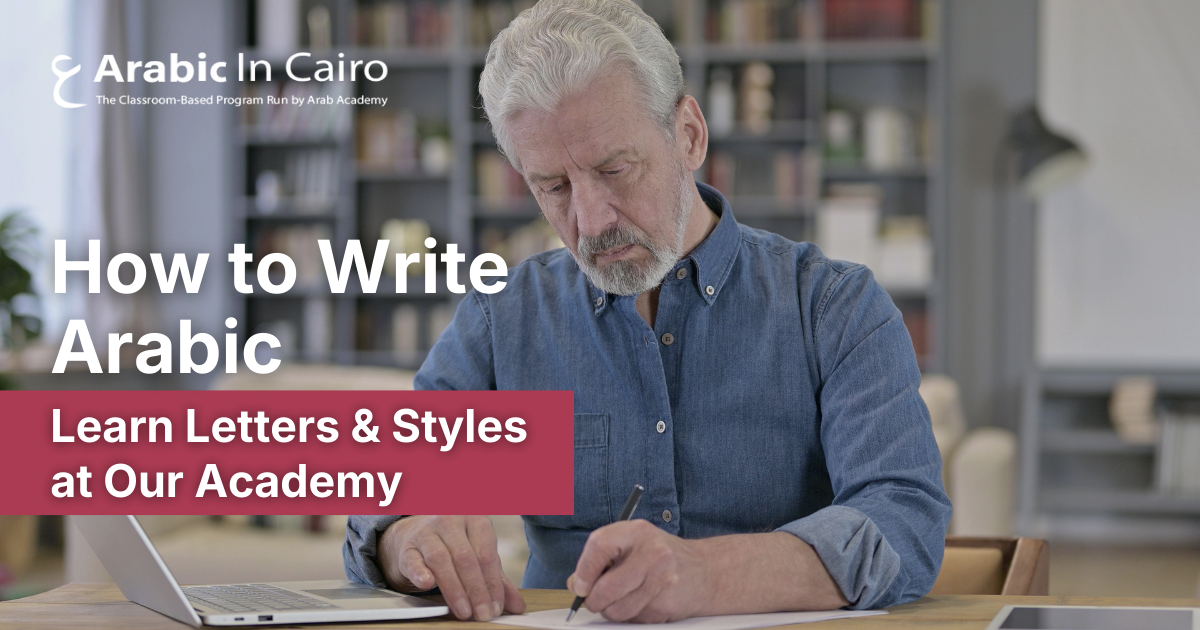Unveiling Egypt’s Rich Tapestry: More Than Just Pyramids
Delving into the Vibrant World of Arab Culture Traditions
Egypt isn’t just the land of pharaohs and pyramids — it’s a living classroom of Arab culture traditions, waiting to be experienced through language, community, and connection. At Arabic in Cairo, learning Arabic goes far beyond grammar and vocabulary; it’s about discovering the heartbeat of Egyptian life and understanding the culture that brings the language to life.
According to the Egyptian Ministry of Culture (2023), there’s a growing national effort to preserve Egypt’s intangible cultural heritage, from traditional crafts to storytelling and music. This renewed cultural focus mirrors Arabic in Cairo’s philosophy — that true fluency comes from immersion in both language and tradition.
Imagine sitting in a Cairo café after class, sipping sweet mint tea while locals chat in melodic Arabic. The city’s rhythm surrounds you with laughter, gestures, and the scent of freshly brewed coffee, blending into an atmosphere that teaches as much as any textbook. This is what Arabic in Cairo offers: real-world learning rooted in authentic Egyptian culture.
Students often find themselves participating in local festivals, exploring historic neighbourhoods, or joining cultural workshops that bring classroom lessons to life. These experiences transform language learning into cultural understanding, an approach that fosters confidence, connection, and belonging.
Whether you’re strolling through Khan El Khalili, learning to bargain in Arabic, or understanding the deeper meanings behind Egyptian expressions, every moment in Cairo becomes a language lesson in itself. Through this immersive experience, Arabic in Cairo helps students not just learn Arabic but live it.
The Language Bridge: Connecting to the Heart of Arab Culture
Why Arabic Culture and Language Learning is Key
The Language Bridge: Connecting to the Heart of Arab Culture
Why Arabic Culture and Language Learning is Key
To truly understand Arab culture, you must embrace the Arabic language itself. At Arabic in Cairo, language learning isn’t confined to textbooks it’s about connecting deeply with the people, the poetry, and the philosophy that define the Arab world. Arabic is not just a means of communication; it’s a vessel for centuries of thought, art, and emotion.
As the Arabic in Cairo emphasises, every lesson in Arabic is also a lesson in culture — an invitation to understand values, traditions, and the rhythm of Egyptian life. A 2024 report by Babbel found a 40% increase in learners studying Arabic to engage more authentically with Arab culture, showing how language is the bridge that connects curiosity to belonging.
Picture this: you’ve just started learning Arabic before visiting Cairo. Suddenly, small moments take on deeper meaning: a friendly “Ahlan wa sahlan” (welcome), a shared laugh with a shopkeeper, or a heartfelt “Shukran” (thank you). Locals appreciate your effort, and doors — both literal and cultural begin to open. That’s the power of learning Arabic where it lives.
At Arabic in Cairo, students don’t just study grammar; they experience Cairo itself as a classroom. Whether ordering koshari, bargaining in Khan El Khalili, or chatting with locals by the Nile, learners gain a firsthand understanding of the Arab culture traditions that make Egypt unique.
Arabic’s expressiveness, its poetic rhythm, and its emotional depth make learning it more than an academic pursuit; it’s a transformative journey into the heart of human connection. Each phrase reveals layers of meaning, helping you see Egypt not just as a destination, but as a living story you become part of.
Beyond the Stereotypes: What Does Arab Culture Mean in Today’s Egypt?
Exploring Contemporary Expressions of Timeless Traditions
Arab culture isn’t trapped in museums or history books; it thrives in everyday Egyptian life. You see it in the respect for elders on Cairo’s metro, in family gatherings that stretch late into the night, and in the laughter that fills Egypt’s bustling streets.
At Arabic in Cairo, students learn that culture is lived, not lectured. Understanding Arab traditions means noticing the gestures, the warmth, and the community spirit that define Egypt’s social fabric. According to a 2023 study by the Egyptian Tourism Authority, 95% of tourists highlighted Egyptian hospitality as a defining feature of their visit, a reflection of how deeply generosity and kindness are woven into Arab identity.
Imagine this: a Cairo taxi driver, already late for his next passenger, stops to help a lost visitor find their hotel. He refuses any extra payment and simply smiles, saying, “Welcome to Egypt!” This moment of sincerity perfectly captures the heart of Arab culture hospitality as a way of life, not a transaction.
It’s important to note that Arab culture is not monolithic. Egypt’s identity blends Pharaonic, Coptic, and Islamic influences, creating a unique cultural harmony that differs from other Arab nations. Understanding these nuances is what makes studying Arabic in Egypt such a rich experience. Every word, phrase, and idiom carries centuries of history and layers of meaning.
Ultimately, Arab cultural traditions in Egypt form a living tapestry where ancient heritage meets modern expression. Through Arabic in Cairo, learners gain a rare opportunity to not only study the language but experience the values, humour, and human warmth that define Egyptian life.







